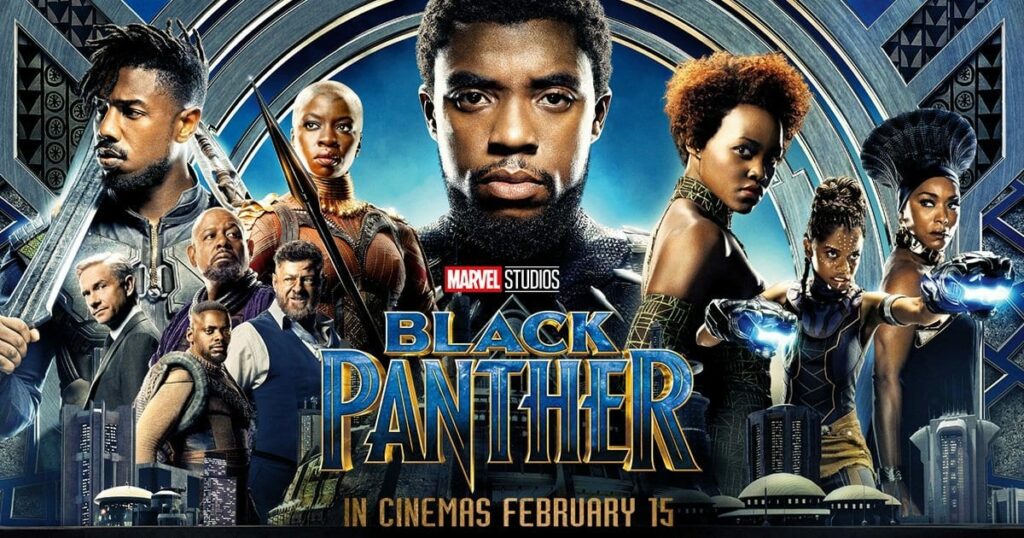
“Black Panther (2018): Wakanda’s Cultural Marvel and Heroic Legacy”
Introduction:
Directed by Ryan Coogler, “Black Panther” soared onto screens in 2018, not only as a superhero blockbuster but as a cultural milestone celebrating African heritage and empowerment.
Cultural Celebration and Representation:
The film immersed audiences in the rich tapestry of Wakandan culture, showcasing a fictional African nation untouched by colonization and highlighting diverse traditions and aesthetics.
T’Challa’s Ascension and Character Depth:
Chadwick Boseman’s portrayal of T’Challa embodied regality and humanity, portraying the internal struggles and responsibilities of a king and a superhero.
Empowering Female Characters:
The film presented strong and multi-dimensional female characters like Okoye, Nakia, and Shuri, who became symbols of empowerment and agency within the narrative.
Sociopolitical Relevance and Themes:
“Black Panther” explored themes of identity, leadership, and the responsibilities of power, resonating with audiences by reflecting on contemporary social issues.
Technological Marvels and World-Building:
The film’s breathtaking visuals, innovative technology, and world-building showcased Wakanda as a technological marvel, blending tradition with advanced civilization.
Cultural Impact and Legacy:
“Black Panther” transcended the superhero genre, becoming a cultural phenomenon that celebrated diversity and representation in cinema, leaving an indelible mark on popular culture.
Conclusion:
“Black Panther” wasn’t just a superhero movie; it was a celebration of African heritage, empowerment, and representation. Its impact on audiences worldwide solidifies its place not just in the superhero genre but in the annals of groundbreaking and culturally significant cinema.
Also read